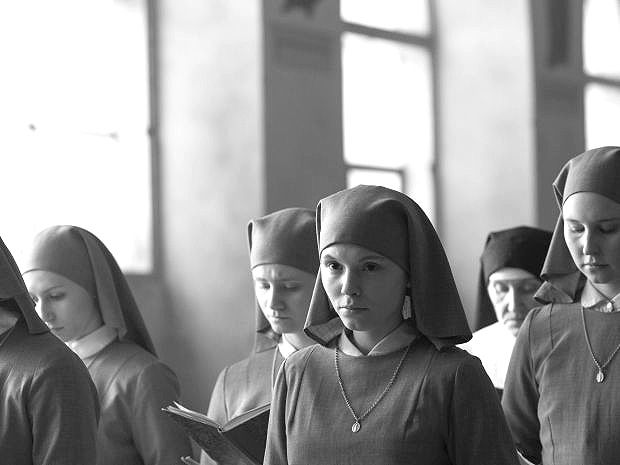A Million Ways to Die in the West (Universal)
Revisionist Westerns, serious films critical of the traditional values and standard conventions of the once-popular genre, were a Hollywood staple during the 1960s and '70s.
A more lighthearted critique of the same material is the aim of "A Million Ways to Die in the West" (Universal). But coarse humor and a dragged-out story line unsaddle this comedy, directed and co-written by "Family Guy" creator Seth Macfarlane, who also takes the starring role.
The script, on which Macfarlane collaborated with Alec Sulkin and Wellesley Wild, establishes positive themes about self-confidence and the need to resist violent machismo. Yet these are intermingled with a frivolous treatment of narcotics, a faulty view of marital fidelity and a good deal of irreverent humor.
The film contains much gory violence, a satirical treatment of faith, scenes of nonmarital sexual activity, some of it aberrant, an adulterous kiss, rear male nudity, drug use, extreme scatological humor, about a dozen uses of profanity and pervasive rough and crude language. (O, R)
Ida (Music Box)
The starkly beautiful minimalist masterpiece that is "Ida" adroitly navigates two horrific eras of Polish history as an aspiring nun discovers her true identity. While brisk and unadorned at a brief 80 minutes, the film is nevertheless anything but simplistic. Director and co-writer (with Rebecca Lenkiewicz) Pawel Pawlikowski assumes that the audience knows something of the Holocaust in Poland, and of the Stalinist show trials to consolidate state power that followed the Soviet victory in World War II.
The story, set in a dismally cold 1962, has 18-year-old novice Anna about to take her vows. The life of the convent is the only existence Anna has ever known, since she was left there as an infant. She is told by an aunt that she is Jewish, her real name is Ida, and her parents were killed in a forest by people who were supposedly hiding them from the German invaders.
Brought up to be obedient, Anna/Ida takes all this in with a surprisingly calm air. She asks Wanda to help her find out more about what happened to her parents and their farm. What ensues is a road trip where Ida eventually breaks out of her shell via a furtive romance with a saxophonist.
The tragic reality that Catholics participated in the slaughter of Jews is not concealed. But it's also shown that Stalinist Jews killed innocents as well. In keeping with the complexities of the history with which he deals, Pawlikowski leaves his beautifully photographed film deliberately open-ended.
The film contains implied nonmarital sexual activity, a suicide and fleeting crass language. (A-III, PG-13)
Maleficent (Disney)
Even an iconic villainess may not be all bad. That's the message of "Maleficent" (Disney). This live-action, feminist retelling of the Magic Kingdom's 1959 animated feature "Sleeping Beauty" seeks to rehabilitate the original film's thoroughly wicked fairy godmother.
Along with its moral shadings, however, director Robert Stromberg 3-D fantasy introduces other novelties that may not sit well with romantics — or with those committed to the traditional family. His picture also has enough dark imagery and bloodless battling to make it unsuitable for the smallest moviegoers.
The title character, initially good, becomes involved in an unlikely romance that ends in a cruel, ambition-fuelled betrayal that leaves her bitter and vengeful. But the grace and innocent goodness of a young girl melts her heart, so much so that she strives to thwart the fulfillment of her own malediction.
As scripted by Linda Woolverton, "Maleficent" can be viewed as an honorable conversion story warning against a hunger for power and a thirst for revenge. Yet it startlingly subverts its source material in a way that can't be specified for fear of a spoiler but that registers as vaguely anti-male and anti-marriage.
The film contains some harsh action violence. (A-II, PG)
—CNS/USCCB
CNS classifications: A-I — general patronage. A-II — adults and adolescents. A-III — adults. A-IV — adults, with reservations. L — limited adult audiences, films whose problematic content many adults would find troubling. O — morally offensive.

